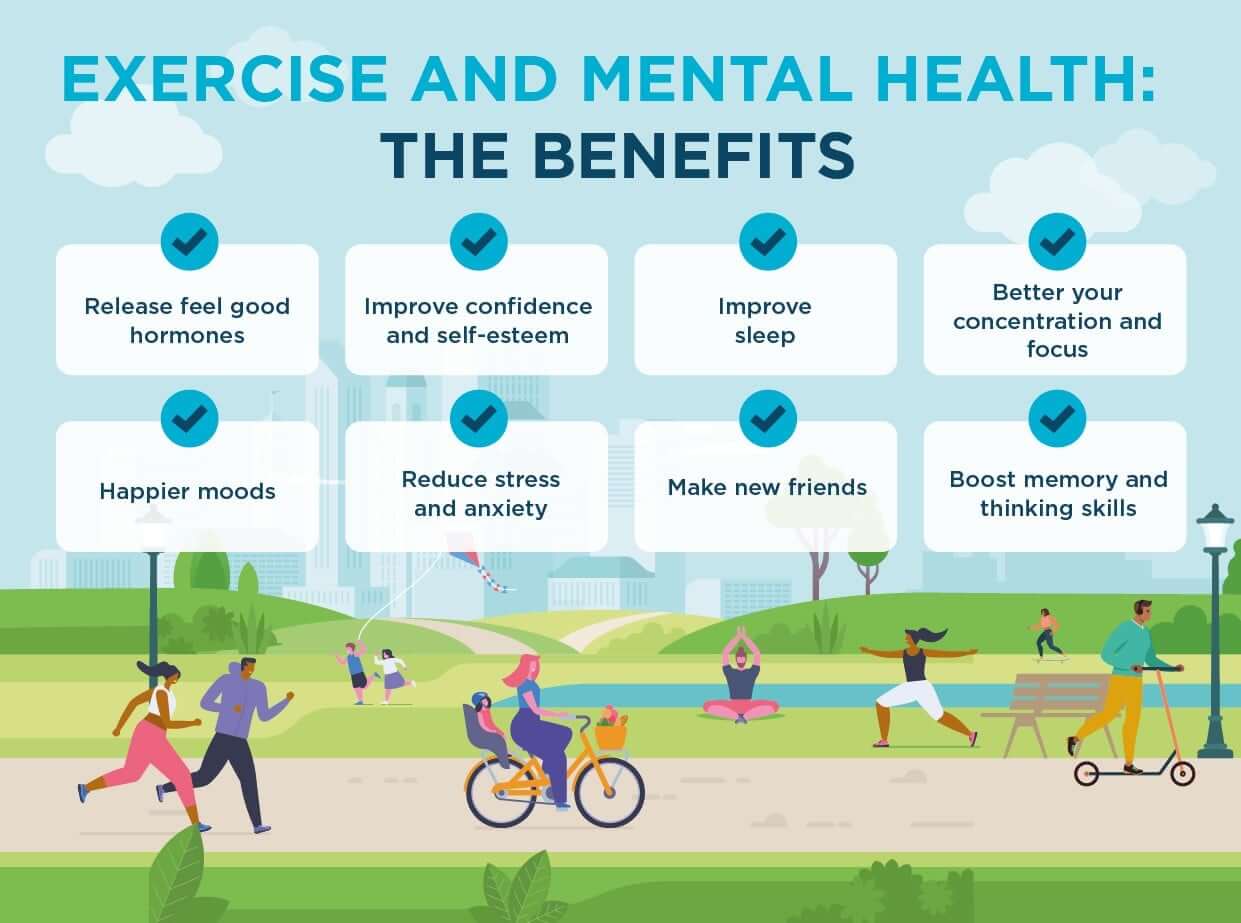
While physiotherapy is commonly associated with physical recovery from injuries and chronic pain, its benefits extend far beyond the physical realm. Regular exercise and movement, often the core of a physiotherapy program, have a profound positive impact on mental health, helping to reduce stress, anxiety, and depression, and improve overall mood and cognitive function.
The Mind-Body Connection
Our physical and mental health are intrinsically linked. When you engage in physical activity, your body releases endorphins, natural mood lifters that can produce a sense of euphoria, often called a "runner's high." But the benefits don't stop there:
- Reduces Stress Hormones: Exercise can lower the body's stress hormones, such as cortisol and adrenaline.
- Improves Sleep: Regular physical activity helps regulate sleep patterns, and good sleep is crucial for mental well-being.
- Boosts Self-Esteem: Achieving fitness goals and improving physical capabilities can significantly enhance self-confidence and body image.
- Provides a Distraction: Physical activity offers a healthy distraction from negative thoughts and rumination.
- Enhances Cognitive Function: Exercise increases blood flow to the brain, which can improve memory, focus, and problem-solving skills.
- Social Connection: Group fitness classes or sports provide opportunities for social interaction, combating feelings of isolation.

Physiotherapy: A Safe Path to Mental Wellness Through Movement
For individuals dealing with physical limitations or pain, getting started with exercise can be daunting. This is where physiotherapy becomes invaluable. A physiotherapist can:
- Assess Your Capabilities: Safely determine what types and intensity of exercise are appropriate for your current physical condition.
- Tailor Exercise Programs: Create a personalized plan that minimizes discomfort and maximizes effectiveness, building confidence as you progress.
- Manage Pain: Address any underlying physical pain that might be preventing you from being active, making exercise more enjoyable.
- Provide Guidance and Motivation: Offer support and encouragement, helping you overcome barriers to physical activity.
- Teach Proper Form: Ensure you perform exercises correctly to prevent injury and maximize benefits.

Simple Ways to Incorporate Movement for Mental Health
- Start small: Even 10-15 minutes of brisk walking can make a difference.
- Find activities you enjoy: Whether it's dancing, gardening, yoga, or playing a sport.
- Make it a habit: Consistency is more important than intensity.
- Exercise with a friend: Adds a social element and accountability.
- Listen to your body: Rest when needed and avoid overtraining.
At Arogya Physiotherapy, we understand the profound link between physical activity and mental well-being. If you're struggling to incorporate movement into your life due to pain or limitations, or if you simply want to enhance your overall wellness, we're here to guide you. Let us help you unlock the power of exercise for both your body and your mind.